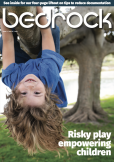If you’re a serial TikTok ‘doom scroller’ like me, you may have come across a radio shock jock giving teachers an F-grade for our perceived inability to improve NAPLAN results.
Usually, I keep scrolling – it won’t be the last time our profession is made a mockery of in the media. This time, however, I couldn’t move on without commenting.
In my career, I have witnessed a multitude of changes in teaching – the impacts of COVID-19, the teacher shortage and the fight for resourcing and pay, to name a few.
Our profession has become a topic of conversation on every platform. We’re judged by people who have read one article and are suddenly experts on education.
A single article is referenced throughout the TikTok piece. The article states that “NAPLAN scores show one in three Australian school students is performing below literacy and numeracy standards”.
It also states: “Action is needed, with the Commonwealth currently locked in negotiations with states and territories for a new decade-long agreement for public school funding.”
Had this shock jock read the entire article or done a little more research, they would have found that it’s inequity in the system that has a profound impact on NAPLAN results.
In an article published in the Australian Financial
Review on 14 August, Jordana Hunter and Nick Parkinson from The Grattan Institute wrote that rather than throwing money at the problem and hoping for change, greater discussion around how we manage these inequities is required at a ministerial level.
Considering these factors, it’s obvious that student outcomes should not solely be based on standardised testing like NAPLAN. For such a test, students as young as seven must sit in silence and answer questions that (due to the nature of our curriculums and the immovability of NAPLAN) may not have been covered in class.
The same test does not allow regular student adjustments as the integrity of the test must be maintained, “even if this is what happens during a student’s regular lessons”. We can’t support students the way we normally would, but our performance is based on this same test?
So, Mr Shock Jock, see how more research might have led you to a more enlightened view?
You choose to sit in your car ranting at your phone and ‘rage-baiting’ a community of professionals who are not personally responsible for the decline in results.
This commentary in mainstream media makes partnerships with parents and communities difficult.
While the mainstream message is that teachers are responsible for every single aspect of child development, it’s hard for stakeholders to be on the same page, which would have greater impact on our students.
See also President’s Report










































































































































